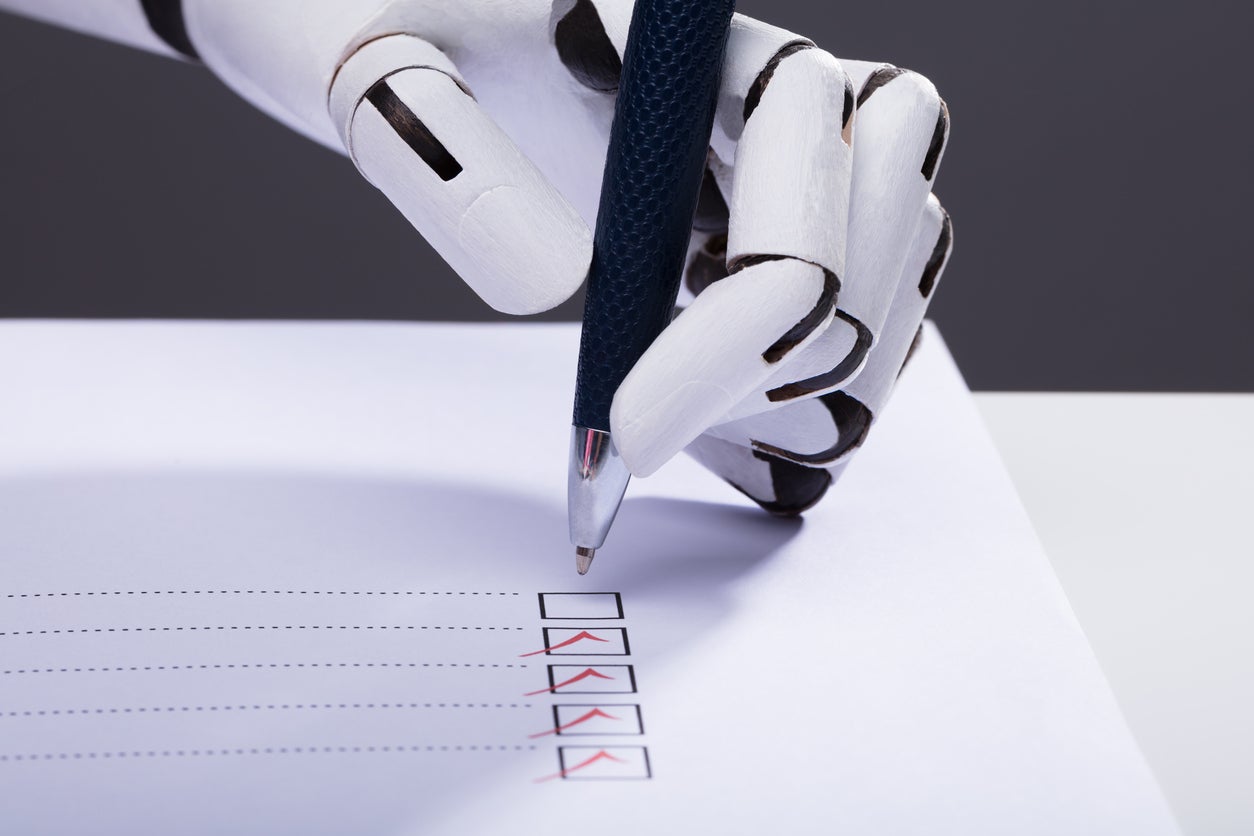2020 election: Artificial Intelligence has chosen a winner - but there's a catch
AI will one day be able to predict the outcomes of the electoral college with near-total precision: it’s not a matter of if, but when, according to statistical physicist Hernan Makse

Artificial intelligence has chosen a winner for the 2020 presidential election — but there’s a catch.
Hernan Makse is a statistical physicist at City University of New York who runs the Complex Networks and Data Science Lab at the Levich Institute in Manhattan.
His lab uses AI to predict the outcomes of international elections using social media traffic, focusing mainly on Twitter, a platform with over 48 million monthly active users in the US.
“We usually start one year from the election, and then we use that data to train the machine and predict the outcome of the election at the national level,” he said in a recent interview with The Independent, noting how AI can now also be used to predict local and state election outcomes after data is organized by geolocation. “Predicting elections is, of course, quite complicated.”
The physicist is the CEO of KCore Analytics, an AI platform which hosts live election predictions and has even begun launching efforts surrounding contact tracing for Covid-19. The company uses over one billion mined tweets for each project it launches, according to the KCore Analytics website, and successfully predicted last year’s surprise election outcome in Argentina.
Mr Makse was preparing to release KCore Analytics’ final predictions surrounding the 2020 presidential elections in the US when we spoke on Monday.
He revealed former Vice President Joe Biden had a strong advantage in terms of the popular vote, according to the AI models his team had trained, but when it came to the Electoral College, “the situation is different”.
Whereas the AI models showed Mr Biden with a healthy lead over President Donald Trump in the national vote, by about eight or nine points, Mr Makse said he “has an advantage, but it’s very, very small” in the electoral college.
“In fact, it’s so small, that we’re actually trying to figure out different scenarios,” the physicist said. “It’s still an open question for us.”
In some ways, AI suffers the same flaws as traditional polling and surveying options surrounding elections and political campaign cycles nationwide.
The same voters who live in rural communities and are otherwise unlikely to be reached by a pollster are the same people who do not often access social media platforms like Twitter, Mr Makse said, effectively excluding them from the data.
“In the case of traditional polls, there are certain groups that are very difficult to capture, and they are the ones who will ultimately decide the fate of the election,” he said. “The people in rural areas, first of all they do not pick up the phone when they are called for polls, but also they don’t use social media, making it very difficult to predict what these people are going to do.”
Predicting elections in other countries is a somewhat easier process since the national vote often determines the outcome. In the US, however, machines must be trained to learn different models for the electoral college that coincide simultaneously with the national vote predictions.
Mr Makse said AI models like his are still in the process of learning how to rescale and predict outcomes with sampling biases and other such limits, and that, one day, machines would be able to easily make up for that lack of knowledge.
Whether AI will correctly predict next week’s presidential election remains unclear. But one day, AI will eventually be able to predict the outcome of the electoral college in any given scenario, according to Mr Makse: it’s not a matter of if, but when.
“The main difference with traditional polling and artificial intelligence is that artificial intelligence is always getting better and better,” he said. “Every election is a new data point, even if you didn’t get it correct … you put all this information back in the model, and then it learns from every election.”
Join our commenting forum
Join thought-provoking conversations, follow other Independent readers and see their replies
Comments
Bookmark popover
Removed from bookmarks